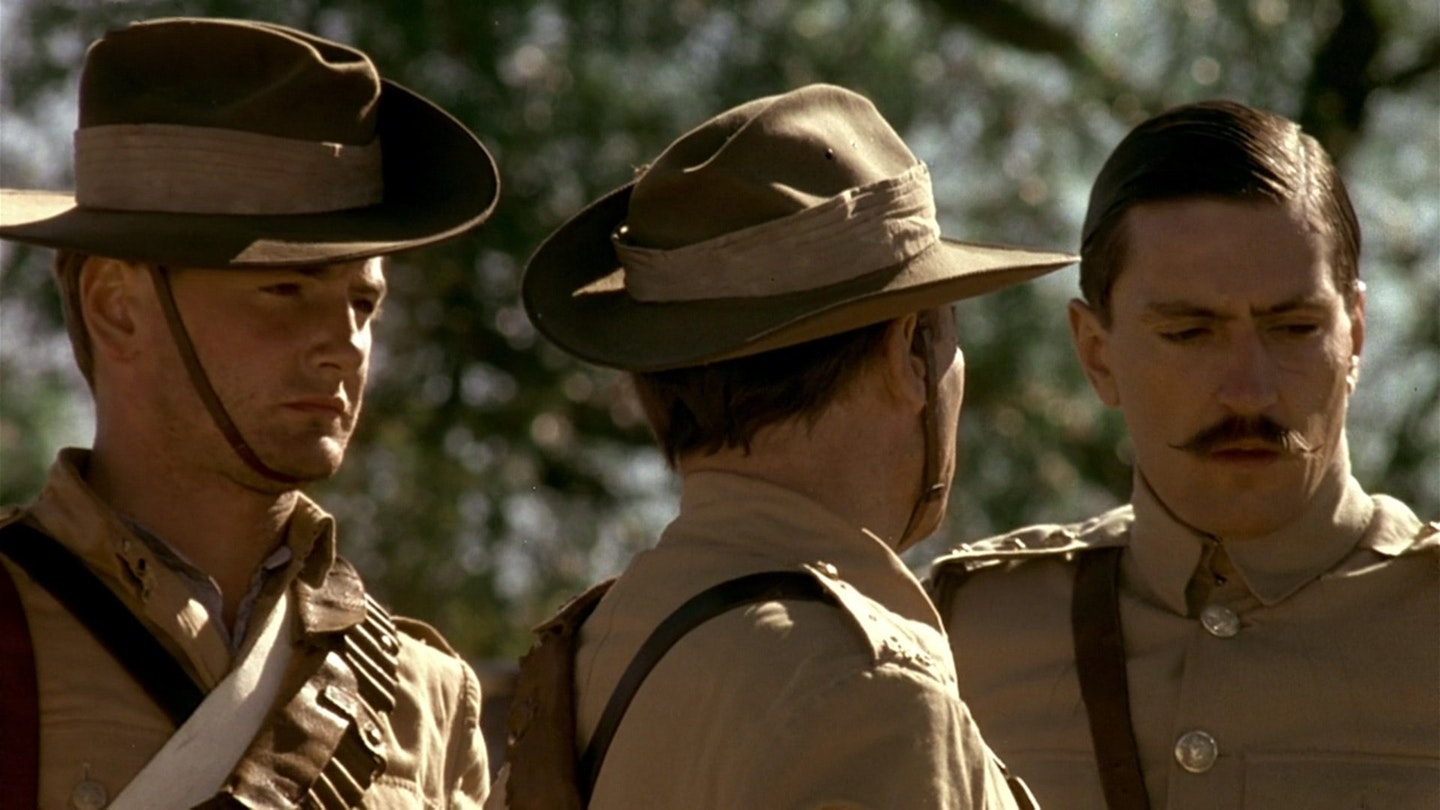This remarkable, superbly mounted anti-war movie from Australia, dallies in none of the absurdities of similar themed material that tends to dress war as a surrealist horror. Bruce Beresford at his most measured, tackles a true story of three devoted Aussie lieutenants court-marshalled for executing a Boar prisoner and a German missionary for no good reason other than some form revenge, without extraneous detail or exterior subplots. Not that his film is thin, indeed, it is heavy with period detail, well organised and powerfully, intelligently acted by the four leads.
The focus for the screenplay, based on Kenneth Ross’ play, is the debate of where responsibility lies, and where the act of murder rests in the context of war. If these three men were following orders, given by their shadowy British commanders, then how are they to blame? A brilliant, vividly infuriated Jack Thompson as their determined defence lawyer Major Thomas, mounts his case around this very dilemma. Surely, if these men are guilty, then the firing squad they ordered should equally be on trial.
Edward Woodward, ably supported by Bryan Brown and Lewis Fitzgerald, doesn’t portray Breaker Morant as a good or just man, in a fierce, moody performance he creates the idea that straightforward morality is a quality unaffordable by men at war. Beresford lifting the microcosm of this localised story, to question the very legal and moral boundaries of warfare itself. Can a soldier killing an enemy, even by execution, be committing murder? He also sensibly realises that pat and obvious answers to such contentions don’t exist — the film concludes with a pessimistic note of failure on all counts. And his film, richly shot and so stirringly acted, remains one the most telling and moving parables of war’s grand folly that cinema has ever given us.
